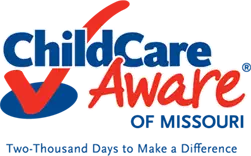What Are The Criteria For A Family To Be Eligible For Early Learning Support & Resources?
Early learning support programs play a vital role in preparing children for school and fostering their cognitive, social, and emotional development. For families seeking assistance, understanding the eligibility criteria is crucial to accessing the right resources. These criteria vary based on location, program type, and available funding, but there are common factors that most programs consider.
Key Eligibility Criteria for Early Learning Support
1. Income Level
Income is one of the most significant factors in determining eligibility for early learning programs. Many initiatives, such as Head Start and state-funded preschool programs, are designed to support low-income families.
- Families typically need to provide proof of income, such as tax returns or pay stubs.
- Federal guidelines often set the income threshold at or below 130% of the federal poverty line for eligibility in government-supported programs.
- Some programs may also provide sliding scale fees for families whose income slightly exceeds the threshold.
2. Age of the Child
Early learning programs are designed for children within specific age brackets. Common age requirements include:
- Infant and toddler programs for children under 3 years old.
- Preschool programs for children aged 3 to 5.
- Pre-kindergarten programs that target 4-year-olds preparing for kindergarten.
- Parents should verify age-specific requirements to ensure their child fits within the program’s guidelines.
3. Family Size and Structure
The number of family members in the household can impact eligibility, particularly when combined with income criteria. Larger families may qualify for increased financial support due to higher living expenses.
Additionally, some programs prioritize families in unique circumstances such as:
- Single-parent households.
- Guardianship by relatives or foster parents.
- Families experiencing domestic violence or homelessness.
4. Children with Disabilities or Special Needs
Many early learning programs prioritize children with disabilities or developmental delays to ensure they receive specialized educational support. Programs like Early Intervention Services and special education preschool programs are designed to meet these needs.
To qualify, families may need to provide:
- Medical records.
- An Individualized Education Program (IEP) or an Individualized Family Service Plan (IFSP).
- Documentation from healthcare providers confirming developmental concerns.
5. Language and Cultural Needs
Children from non-English-speaking households may qualify for specialized early learning programs that provide language support. These programs aim to foster language development while supporting cultural integration to ease the transition into mainstream education.
6. Parental Employment or Education Status
Some programs require parents or guardians to be actively employed, enrolled in school, or participating in a job training program. These criteria aim to support working families in need of childcare and early education services.
For instance:
- Childcare assistance programs may require proof of work hours or class schedules.
- Families enrolled in workforce development programs may also be prioritized.
7. Homelessness or Housing Instability
Children living in unstable housing situations are often given priority access to early learning resources. Programs like the McKinney-Vento Act provide educational support for homeless children to ensure they receive consistent learning opportunities.
Eligibility for such support may require documentation from shelters, social services, or community organizations.
8. Geographical Location
Certain programs have location-based requirements, particularly state-funded or district-specific preschool programs. Families may need to prove residency within a designated school district or county to qualify.
9. Military or Veteran Families
Many programs prioritize children from military families to support those impacted by frequent relocations, parental deployment, or other challenges unique to military life. Proof of military service may be required to access these resources.
10. Referrals from Healthcare or Social Services
In some cases, children may qualify for early learning support through referrals from healthcare providers, social workers, or child welfare services. Such referrals are common for children identified as at-risk or in need of additional developmental support.
How to Apply for Early Learning Support Programs
If your family meets one or more of the criteria mentioned above, you can take the following steps to apply for early learning resources:
- Research Available Programs: Identify local programs such as Head Start, Early Head Start, state-funded preschools, or community-based initiatives.
- Gather Documentation: Prepare essential documents, including proof of income, residency, and your child’s birth certificate.
- Contact Program Administrators: Reach out to program coordinators for guidance on eligibility requirements and application deadlines.
- Schedule Assessments (if needed): Some programs may require developmental screenings or assessments to tailor resources to your child’s needs.
- Stay Engaged: Maintain communication with your chosen program to ensure you receive timely updates and guidance throughout the enrollment process.
Conclusion
Early learning support programs are crucial for ensuring children from diverse backgrounds receive equal opportunities for educational success. By understanding the eligibility criteria and taking proactive steps, families can access valuable resources that promote their child’s development and long-term success. Whether it’s financial support, developmental services, or language programs, Childcare aware can as a reliable childcare service provider, CCAMO can point you in the right direction if you need support for the welfare of your children. Reach out to us today to learn more!




